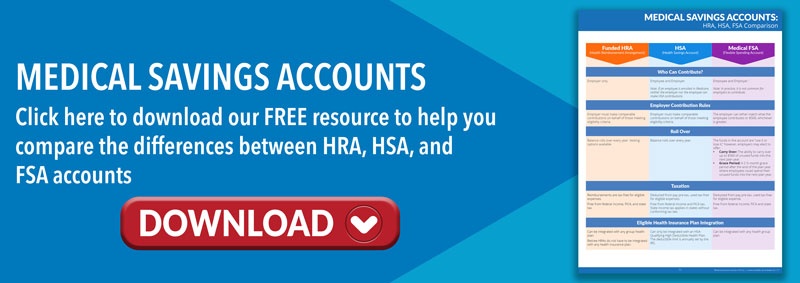3 minute read
An individual coverage health reimbursement arrangement (ICHRA) is an employer-funded healthcare account that provides an alternative to traditional group health plans. Employers can use ICHRAs to reimburse employees' premiums for individual health insurance policies tax-free. They allow employers to control costs by setting a reimbursement limit each year, without the risk of unexpected high-cost claims or rate increases. ICHRAs may not be suitable for all employers, especially those with employees eligible for the Affordable Care Act’s (ACA) premium tax credits. Employers should consider the benefits and drawbacks before offering an ICHRA.
ICHRA Advantages
Employers may consider implementing an ICHRA because it offers the following advantages:
- Cost control - Employers have full control over their health care spending with an ICHRA, allowing them to define annual contributions and adjust them based on inflation without minimum or maximum limits.
- Flexibility - Employers have the flexibility to determine eligible employee classes for the ICHRA and contribution amounts.
- Compliance with the ACA’s pay-or-play rules – Applicable large employers (ALEs) must offer affordable health coverage to full-time employees under the ACA pay-or-play rules. They can use ICHRAs to provide coverage without penalty if deemed affordable, requiring adequate contributions for full-time employees.
- Tax advantages - ICHRA is a tax-advantaged vehicle that allows employers to deduct contributions from federal income tax, provides tax-free coverage for employees, and allows reimbursements for medical expenses. Employees can also pay any remaining premiums on a pre-tax basis through Section 125 cafeteria plans.
- Employee advantages - Offering an ICHRA to part-time or seasonal employees can attract and retain valuable talent, benefit remote workers, and give employees more control over their health coverage choices, even if they switch jobs.
ICHRA Disadvantages
When considering if an ICHRA is a good fit, employers should consider the following disadvantages:
- Unfamiliarity - Employers must invest time and resources to understand ICHRAs, decide on administration, eligibility, and contributions, and provide clear explanations to employees transitioning from traditional group health plans. Employees may have concerns about ICHRA coverage and finding individual health insurance.
- Administrative burden - Administering an ICHRA can be challenging and often requires hiring a third-party administrator (TPA) to manage day-to-day administration. Employers (or TPAs) must verify employee enrollment in health insurance, allow opt-outs, and provide an annual notice on ICHRA and its interaction with the ACA's premium tax credit.
- Impact on premium tax credit - ICHRAs make employees ineligible for ACA premium tax credits, which lower health insurance premiums. If enrolled in ICHRA, individuals cannot receive premium tax credits, but ICHRA is considered affordable under ACA rules.
- Compliance requirements - ICHRAs are subject to strict legal rules, including ERISA compliance and COBRA requirements. Employers must ensure compliance with reporting, disclosure, and fiduciary responsibilities. ALEs must also ensure affordability of ICHRA coverage to avoid penalties.
- Disadvantages for employees - Employees may be skeptical of ICHRAs because they require purchasing individual health insurance policies or having Medicare coverage. Eligible employees cannot have other group health coverage and may face limited individual coverage options based on the insurance market. This approach carries the risk of rising premiums and potential high out-of-pocket expenses for unexpected medical issues.
Download the bulletin for more details.
Additional Resources
FAQs on Final Rules, which includes model substantiation form and model annual notice

